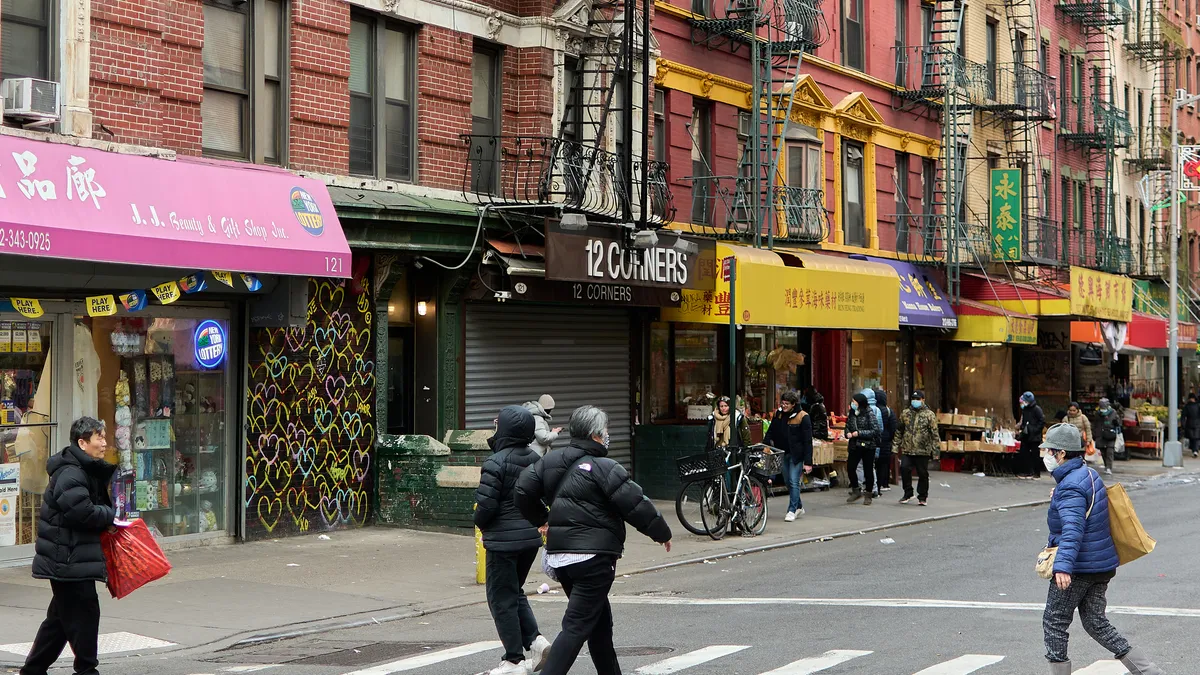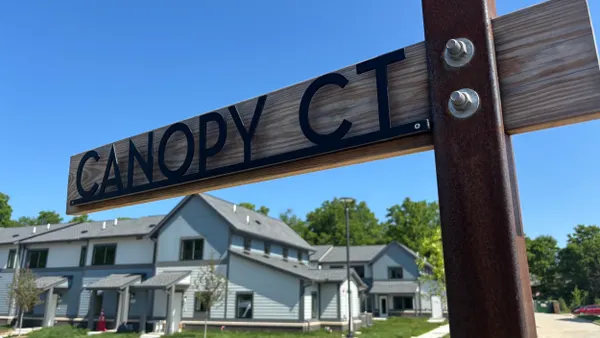Dive Brief:
- The New York City Council approved a plan on Thursday that city officials are calling the “most pro-housing zoning proposal” in the city’s history.
- The citywide rezoning, named “City of Yes for Housing Opportunity,” will enable 80,000 new homes to be built over the next 15 years, according to a news release. The plan also includes up to $5 billion for housing and infrastructure upgrades.
- The plan passed narrowly, with more than a third of city council members voting against it. The most intense opposition to certain aspects of the plan came from more suburban-style neighborhoods, where leaders expressed concern about the impact of adding more density to their community, according to Politico.
Dive Insight:
More than 175 community board meetings, ten public information sessions and a City Planning Commission hearing preceded the Thursday passage of the zoning proposal.
“City of Yes for Housing Opportunity” is the final of three zoning overhaul initiatives led by Mayor Eric Adams’ administration. Approved in December 2023, “City of Yes for Carbon Neutrality” aims to help New York cut carbon emissions by removing zoning impediments to infrastructure like rooftop solar, onshore wind, EV charging and energy storage systems. New York City Council approved the second initiative, “City of Yes for Economic Opportunity,” in June. That plan focuses on supporting the city’s economic recovery by creating more space for business and manufacturing.
“City of Yes for Housing Opportunity,” meanwhile, attempts to tackle the housing affordability crisis in what is often regarded as one of the world’s most expensive cities to live in. “New York City’s housing crisis has persisted for so long that many assume high rents, scarce housing, and landlords holding all the cards are just a fact of life,” Dan Garodnick, director of the Department of City Planning, said in a statement. “But these outcomes are the result of policy choices, and today, we are officially choosing a new path.”
The new plan allows about 20% more housing in medium- and high-density developments as long as the additional units are permanently affordable. New “high-density” zoning districts will allow more housing in high-demand central areas. The plan also legalizes co-living housing models and small accessory dwelling units for one- and two-family homes (except in certain areas with flooding and other concerns). And converting offices and other commercial buildings into housing will be easier under the plan, the city says.
The plan means that many developers of new residential buildings will no longer have to comply with parking mandates. Parking mandates are lifted completely in most of Manhattan and large areas of Brooklyn and Queens closest to Manhattan. That move creates the nation’s most populous area without parking mandates, according to a press release. Other areas of the city will see reductions in parking requirements or no change in requirements.
The up to $5 billion in funding included in the plan will be split among various uses, with $1 billion committed to housing capital and $2 billion going toward sewer and flood infrastructure, street improvements and open space. Over 10 years, another $1 billion will go toward actions including tenant protection, voucher assistance, flood monitoring and neighborhood planning. New York Gov. Kathy Hochul said the state plans to chip in another $1 billion in housing capital over five years, as long as it is approved in the state budget.











